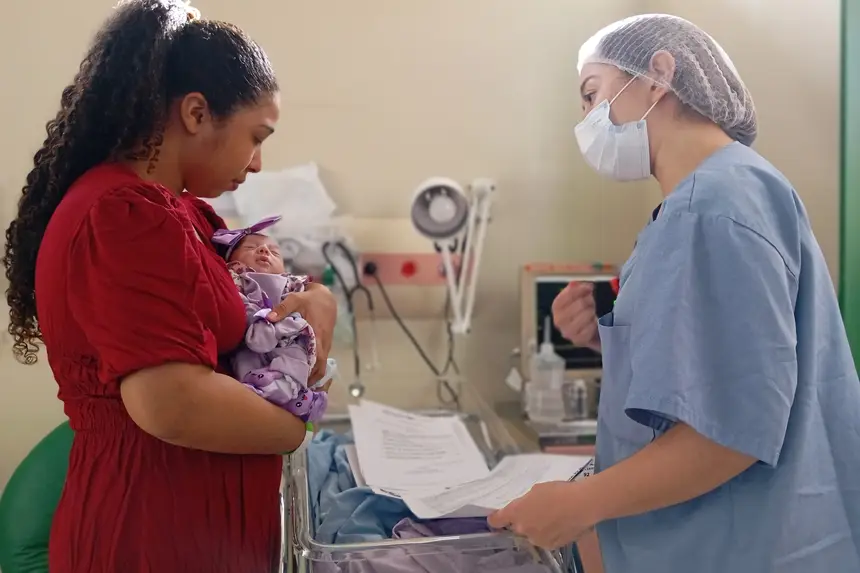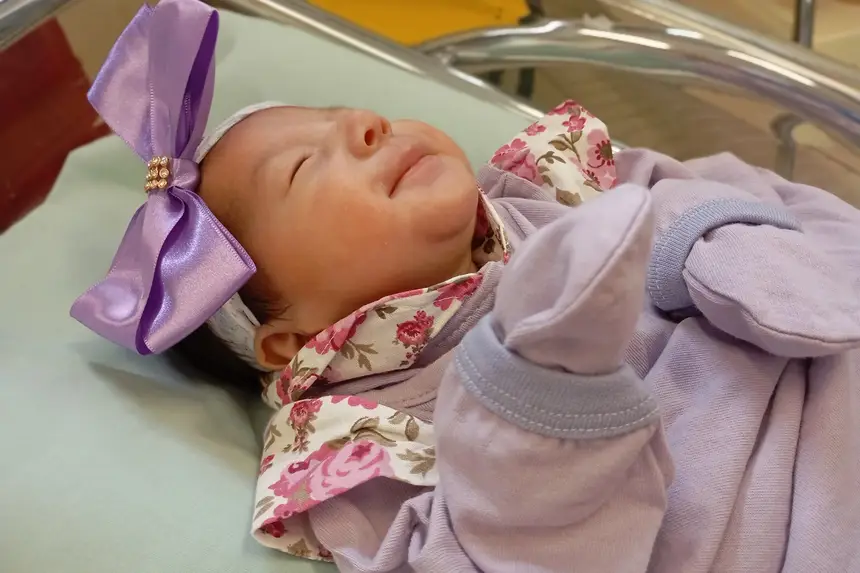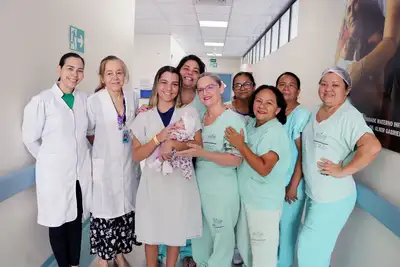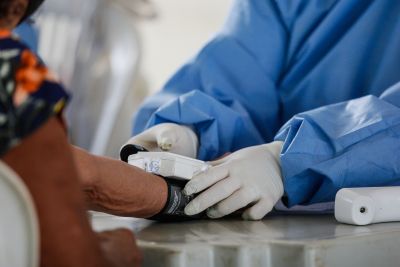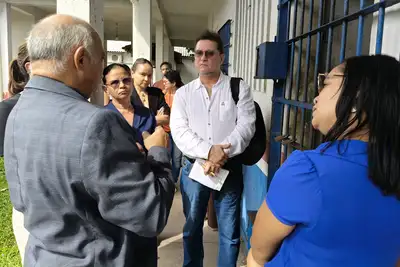Baby with extreme prematurity discharged from the Public Hospital of Transamazônica
Parents celebrate being able to return home with their daughter who was born at six months of gestation
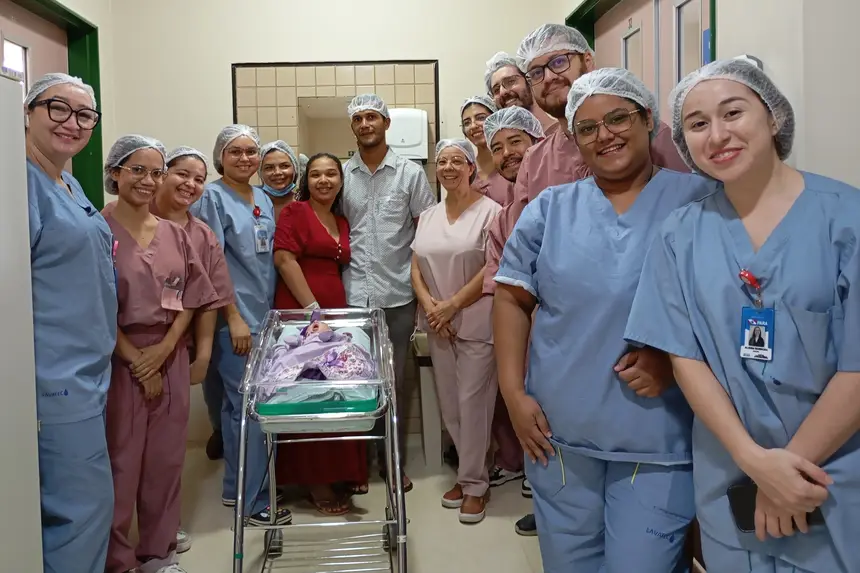
Once again, the bell rang to announce good news at the Regional Public Hospital of Transamazônica (HRPT): the discharge of a baby who won the battle for life and was released to go home. Eliza spent 60 days hospitalized in the Neonatal Intensive Care Unit (NICU). She is among 340,000 babies born prematurely every year in Brazil. The World Health Organization (WHO) classifies a child born before the 37th week as premature.
Eliza's case is much more delicate, as she was born when her mother, Luana Baca, was only 24 weeks pregnant, or 6 months. This type of birth is referred to in medicine as extreme prematurity. “It is very gratifying, it is very strong, given the losses we have already had, to leave with our daughter well and alive,” the mother emotionally celebrates, who, before being transferred from Santarém to HRPT for Eliza's treatment, lost her first two children, also premature, shortly after birth.
“There is no way to explain the emotion we are feeling. I want to thank the entire medical team that worked hard to take care of our daughter,” adds Abraão Barbosa, the father. The Transamazônica Hospital is a reference in medium and high complexity and is recognized with a national quality seal in the treatment of children and babies.
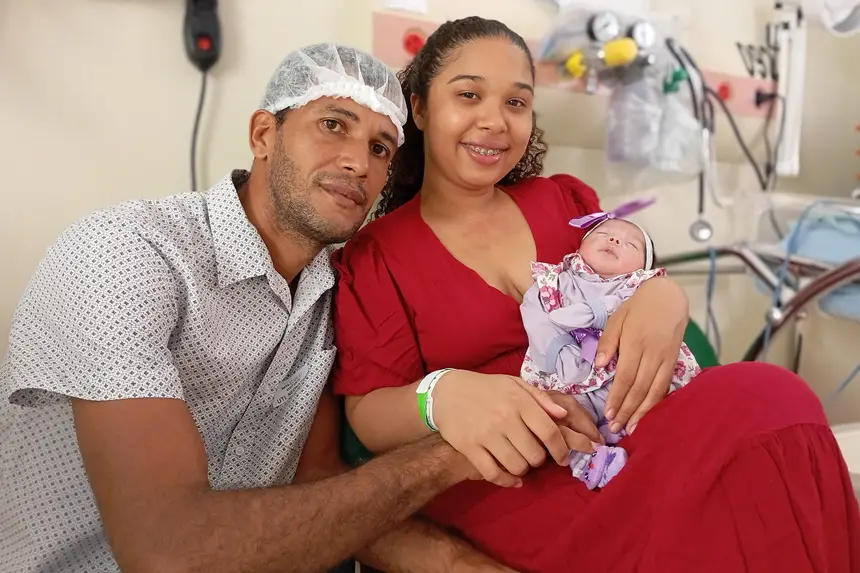
Every month, HRPT receives 12 premature and extremely premature newborns, who are cared for by a team composed of doctors, technicians, and nurses, like Alissia Barbosa. “I was the nurse who received Eliza when she arrived from Santarém in an incubator, full of machines. Whenever I receive a patient, they become special. Just by having received her and now being at discharge, I came jumping, happy,” she excitedly shares.
In addition to the Neonatal ICU, the hospital has Pediatric and Child ICUs, being the largest health center in the Transamazônica region and the only one equipped to care for high-risk children due to extreme prematurity.
Prematurity - General practitioner Peperson Carvalho explains that “prematurity is a public health challenge worldwide.” Even though it is one of the aggravating factors for mortality, it is not possible to point to a specific cause, but the general practitioner presents points that should be considered:
Maternal factors – hypertension during pregnancy, diabetes, urinary or genital infections, alcohol and other drugs, as well as maternal age;
Obstetric factors – rupture of amniotic membranes, placental abruption, history of multiple pregnancies;
Economic conditions – difficulty accessing prenatal care, inadequate nutrition, stress;
Unknown causes – 30% to 40% of premature births have no specific triggering factor.
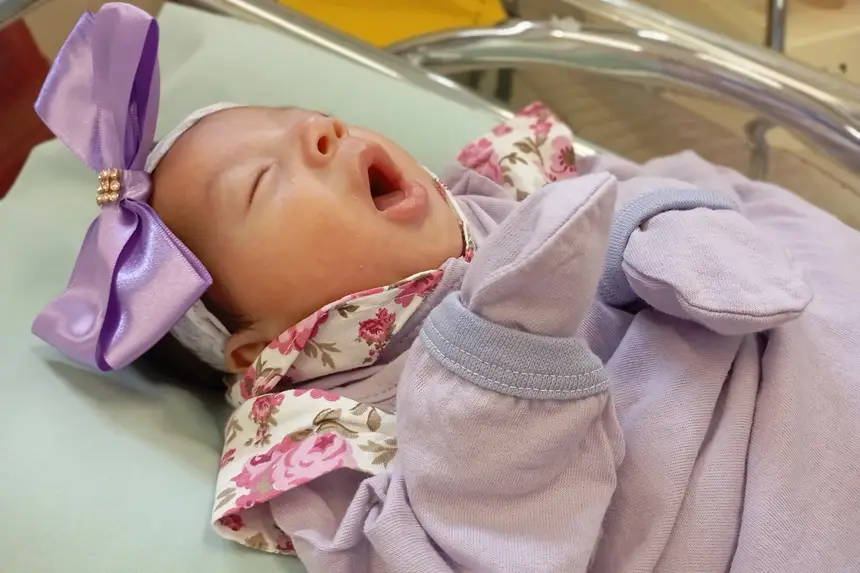
Since they are born, premature babies require specific care, as pointed out by neonatologist pediatrician Maria José Silva. “They need to be born in a specialized service because they need a team to start resuscitation that most of them require. Depending on how the birth went, we will take initiatives, but normally they are babies that need help.”
In most cases, premature newborns, especially those with extreme prematurity, are subjected to mechanical ventilation, isolation, and adapted feeding. At HRPT, multiprofessional teams are responsible for the assistance, from reception to discharge. For doctor Maria José, it is impossible to imagine a region like Transamazônica without a reference unit. “When these babies are not born here, when they are transferred from other municipalities, they come without adequate assistance and the risk of having more sequelae is greater.”
Located in Altamira, the Regional Public Hospital of Transamazônica helps save the lives of premature babies born in 9 municipalities.
The sooner, the better - Early diagnosis can help health professionals provide more assertive guidance on what measures can be taken, which is why prenatal care is essential and can represent the salvation of the child. General practitioner Peperson Carvalho warns that in Brazil “there is still a very large fragility regarding these prenatal cares.”
During pregnancy monitoring, it is possible to indicate, for example, if the mother is at risk of pre-eclampsia, intrauterine growth restriction, placental abruption, comorbidities, and various pathologies. The earlier we identify these risks, the greater the chances of avoiding a premature birth and providing a safer pregnancy for both the mother and the baby,” emphasizes the doctor.
Text: Rômulo D'Castro (HRPT)


